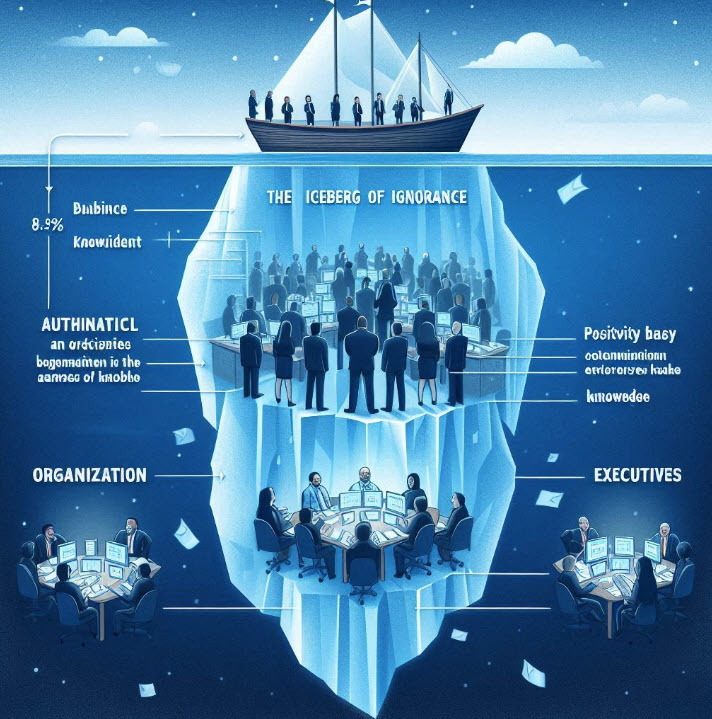
The Iceberg of Ignorance
Last updated: September 05, 2024 Read in fullscreen view
- 01 Aug 2024
 The Standish Group report 83.9% of IT projects partially or completely fail 339/2059
The Standish Group report 83.9% of IT projects partially or completely fail 339/2059 - 13 Apr 2024
 Lessons on Teamwork and Leadership from Chinese story book "Journey to the West" 81/1085
Lessons on Teamwork and Leadership from Chinese story book "Journey to the West" 81/1085 - 01 May 2023
 Understanding Business as Usual (BAU) and How to Transition 52/930
Understanding Business as Usual (BAU) and How to Transition 52/930 - 02 Nov 2021
 What is Terms of Reference (ToR)? 47/1566
What is Terms of Reference (ToR)? 47/1566 - 03 Apr 2022
 Microsoft Solutions Framework (MSF) 29/1273
Microsoft Solutions Framework (MSF) 29/1273 - 18 Dec 2023
 The Cone of Uncertainty in Scrum & Requirement Definition 17/701
The Cone of Uncertainty in Scrum & Requirement Definition 17/701 - 12 Aug 2022
 What is End-to-end project management? 15/444
What is End-to-end project management? 15/444 - 26 Sep 2024
 Successful Project Management Techniques You Need to Look Out For 14/401
Successful Project Management Techniques You Need to Look Out For 14/401 - 10 Apr 2024
 The Parking Lot Method: Unlocking a Simple Secret to Supercharge Your Productivity 14/481
The Parking Lot Method: Unlocking a Simple Secret to Supercharge Your Productivity 14/481 - 12 May 2024
 The Pros and Cons of the Creator Economy in the Age of AI: Opportunities, Challenges, and the Gray Zone with the Gig Economy 14/270
The Pros and Cons of the Creator Economy in the Age of AI: Opportunities, Challenges, and the Gray Zone with the Gig Economy 14/270 - 05 Jun 2023
 Fractional, Part-Time (virtual) or Interim CTO: Who Will Cover Your Business Needs? 14/148
Fractional, Part-Time (virtual) or Interim CTO: Who Will Cover Your Business Needs? 14/148 - 18 Oct 2021
 Key Elements to Ramping Up a Large Team 13/1198
Key Elements to Ramping Up a Large Team 13/1198 - 07 Jul 2022
 Managing Project Execution Terms 12/411
Managing Project Execution Terms 12/411 - 23 Jun 2024
 Best Practices for Managing Project Escalations 11/207
Best Practices for Managing Project Escalations 11/207 - 24 Nov 2023
 The project management paradox: Achieving MORE by doing LESS 10/219
The project management paradox: Achieving MORE by doing LESS 10/219 - 06 Jun 2022
 Change Management at the Project Level 10/309
Change Management at the Project Level 10/309 - 02 May 2022
 What Is RAID in Project Management? (With Pros and Cons) 10/813
What Is RAID in Project Management? (With Pros and Cons) 10/813 - 13 Jan 2020
 Quiz: Test your understanding project cost management 10/609
Quiz: Test your understanding project cost management 10/609 - 20 Jul 2022
 Software Myths and Realities 10/891
Software Myths and Realities 10/891 - 14 Jun 2022
 Example and Excel template of a RACI chart in Software Development 10/804
Example and Excel template of a RACI chart in Software Development 10/804 - 02 Dec 2021
 3 Ways to Avoid Scope Creep in IT Consulting 9/207
3 Ways to Avoid Scope Creep in IT Consulting 9/207 - 22 May 2022
 What are common mistakes that new or inexperienced managers make? 9/286
What are common mistakes that new or inexperienced managers make? 9/286 - 02 Nov 2022
 Difference between Change Management and Project Management 9/232
Difference between Change Management and Project Management 9/232 - 07 Dec 2023
 12 project management myths to avoid 8/189
12 project management myths to avoid 8/189 - 05 Oct 2021
 Shiny Object Syndrome: Why Your Business Isn't "Going Digital" 8/351
Shiny Object Syndrome: Why Your Business Isn't "Going Digital" 8/351 - 15 May 2022
 20 Common Mistakes Made by New or Inexperienced Project Managers 8/281
20 Common Mistakes Made by New or Inexperienced Project Managers 8/281 - 27 Jan 2020
 Should a project manager push developers to work more hours due to mistakes of manager schedule setting? 8/434
Should a project manager push developers to work more hours due to mistakes of manager schedule setting? 8/434 - 09 May 2022
 Build one to throw away vs Second-system effect: What are differences? 8/316
Build one to throw away vs Second-system effect: What are differences? 8/316 - 10 May 2022
 Levels of Teamwork 6/197
Levels of Teamwork 6/197 - 03 Jan 2023
 Organizing your agile teams? Think about M.A.T (Mastery, Autonomy, Purpose) 6/375
Organizing your agile teams? Think about M.A.T (Mastery, Autonomy, Purpose) 6/375 - 17 Oct 2021
 Does Fast Tracking increase project cost? 6/368
Does Fast Tracking increase project cost? 6/368 - 30 Nov 2023
 Project Managers, Focus on Outcomes — Not Deliverables 5/159
Project Managers, Focus on Outcomes — Not Deliverables 5/159 - 01 Mar 2024
 10 Project Management Myths 5/143
10 Project Management Myths 5/143 - 23 May 2024
 Mastering AI: Sharpening the Axe in the Digital Age 5/245
Mastering AI: Sharpening the Axe in the Digital Age 5/245 - 15 Aug 2025
 Quantum Technology: Global Challenges and Opportunities for Innovators 4/100
Quantum Technology: Global Challenges and Opportunities for Innovators 4/100 - 01 Aug 2022
 Is planning "set it and forget it" or "set it and check it"? 3/277
Is planning "set it and forget it" or "set it and check it"? 3/277 - 02 Jun 2024
 Reviving Ancient Wisdom: The Spiritual Side of Project Management 3/233
Reviving Ancient Wisdom: The Spiritual Side of Project Management 3/233 - 21 Jun 2024
 Dead Horses and the Escalation of Commitment 3/139
Dead Horses and the Escalation of Commitment 3/139 - 18 Feb 2026
 "Hit and Run" Project Management: Balancing Speed with Sustainability 2/7
"Hit and Run" Project Management: Balancing Speed with Sustainability 2/7
The iceberg of ignorance refers to the lack of understanding and awareness of problems within an organization. It is a concept from Sidney Yoshida's 1989 study, which reveals how problems are known and understood by different levels of an organization. On the front lines, staff know 100% of problems, while supervisors know 74%, middle management knows 9%, and executives know only 4%. This gap between front-line and executive knowledge is due to two main dynamics: positivity bias in communications and the need for authentic organizational engagement.
Ignorance is bliss, as it negatively impacts the organization's resilience. Executives often make decisions based on limited data, making them more fragile. Systems thinking requires good data, cooperation, and sharing knowledge outside departments. Without authentic engagement, leaders may live with the illusion that they already know what they need to know to make good decisions and set the strategic focus of the organization.
Organizations need to build engagement mechanisms that enable them to withstand upheaval and continue operating if they are to become more resilient.
Continue reading at kathleenallen.net
| About the Author |
Dr. Kathy Allene |
President of Allen and Associates | Dr. Kathy Allen is the author of Leading from the Roots: Nature Inspired Leadership Lessons for Today’s World (2019) and President of Allen and Associates, a consulting firm that specializes in leadership, innovation, and organizational change. |

















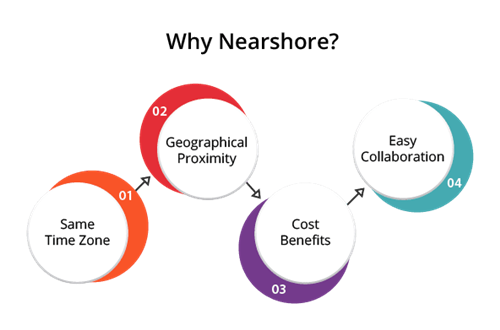

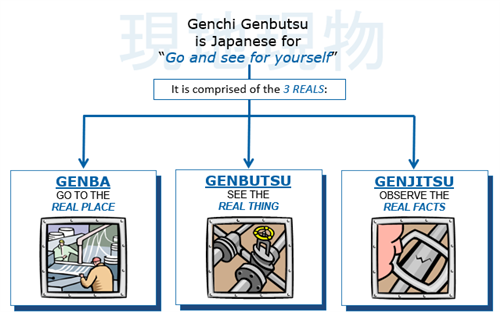

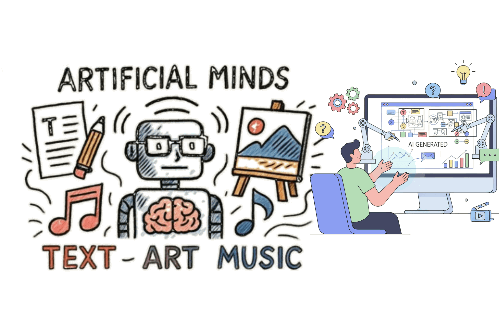












 Link copied!
Link copied!
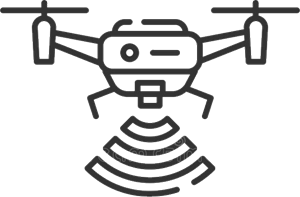 Recently Updated News
Recently Updated News